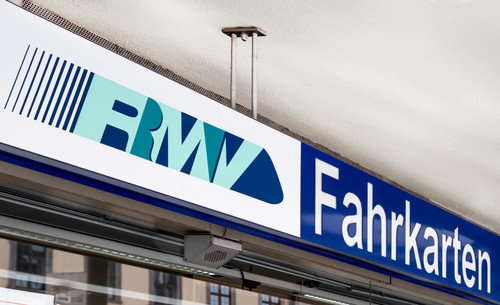Popular Reads
Top Results
Can't find what you're looking for?
View all search resultsPopular Reads
Top Results
Can't find what you're looking for?
View all search resultsFrankfurt starts building fuel station for world's biggest zero-emissions train fleet
German regional transport group RMV began construction of a filling station near Frankfurt that will use hydrogen generated as a by-product of chemicals manufacturing to fuel the world's largest fleet of zero-emissions passenger trains.
Change text size
Gift Premium Articles
to Anyone
G
erman regional transport group RMV began construction on Monday of a filling station near Frankfurt that will use hydrogen generated as a by-product of chemicals manufacturing to fuel the world's largest fleet of zero-emissions passenger trains.
France's Alstom will deliver 27 hydrogen-powered fuel cell trains to the Infraserv Hoechst industrial park in the Rhine-Main region in mid-2022. Starting regular local services by that winter, the fleet will replace diesel engines.
The fuel cells on board the trains will turn hydrogen and oxygen into electricity to provide low-noise propulsion that only emits water, helping cut carbon pollution from transport.
Hesse state and the federal government helped fund the 500 million euro ($590.4 million) project. The Coradia iLint trains will be fueled by hydrogen released as a byproduct of chlorine made in the chemicals and pharmaceuticals park, and piped to the tank tracks.
More hydrogen will come from a yet-to-be built 5 megawatt (MW) electrolyzer that will draw on renewable electricity.
Read also: Germany rolls out world's first hydrogen train
"We have shown that we will have enough hydrogen to fuel the fleet economically. With one full tank per day, the trains can travel 1,000 kilometers, just like diesel trains," said RMV's managing director Knut Ringat at a ceremony.
RMV will reclaim parts of its investment via fares. The Berlin government has also helped pay a 40% price premium for the trains over a diesel equivalent.
Berlin expects green hydrogen to become competitive with fossil fuels and to play a key role in decarbonizing industry, heating and transport.
Hesse lies in the center of Europe. Half its energy consumption goes into transport, such as the link to Frankfurt airport, Europe's biggest air cargo hub, and adjacent railways and roads.
Infraserv Hoechst provides heat, power, gas, water, logistics and waste disposal to 90 companies and 22,000 workers.











